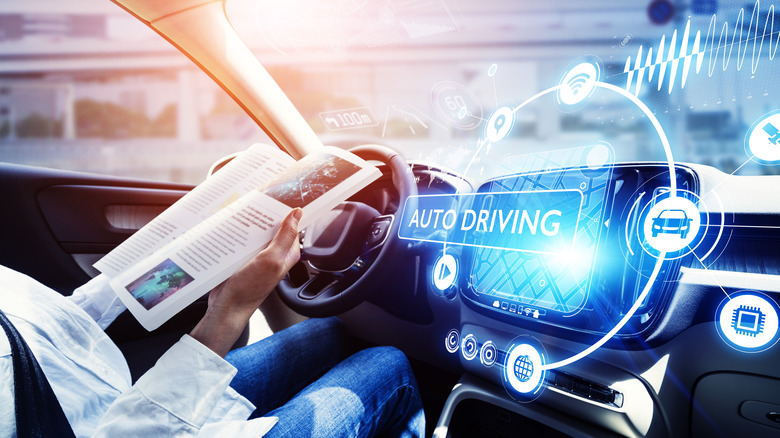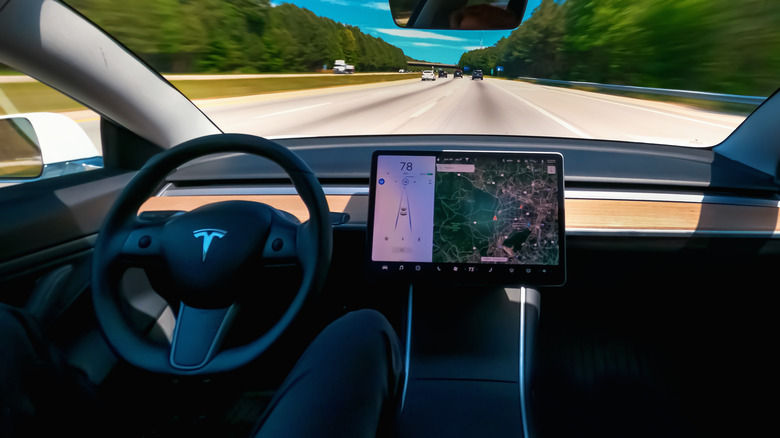Will Watching TV In Self-Driving Cars Actually Be Legal In The UK?
With the rise of the self-driving car comes the inevitable threat of the distracted human behind the wheel, getting engrossed in social media chatter, or playing mobile games on a phone instead of paying attention to the road. In 2020, a Tesla on autopilot rammed into a law enforcement official's car while the owner had their eyes on their phone. In a fatal Tesla Model S crash in 2016, the driver was reportedly watching Harry Potter after putting the car on autopilot mode. Despite the danger, the U.K. enacted a legal ruling which ensures that self-driving car occupants may view content on their dashboard screen while the vehicle is in motion.
In a joint press release from the Department for Transport and the Centre for Connected and Autonomous Vehicles in the U.K., the government notes that the updated rules will allow "drivers to view content that is not related to driving on built-in display screens." However, using phones behind the wheel still remains illegal as the rules aim for the driver to be ready for taking back control of their autopiloted vehicle when needed. Even after the updated version of The Highway Code goes live, using mobile phones while behind the steering wheel of a vehicle in self-driving mode will still be deemed an illegal act that will attract fines and other forms of punitive action.
Paving the way for self-driving cars
The U.K. currently has no self-driving vehicles on the road, but the country hopes to put such cars on the road by the end of 2022. Meanwhile, the government will continue its work on a full legal framework for self-driving cars and aims to get it done by 2025. Initially, the government is aiming for self-driving cars to hit slow-speed motorways and areas with traffic congestion before they're allowed to initiate autopilot elsewhere. With a proper self-driving rulebook in place ahead of greenlighting the adoption of such cars, the government aims to solve urban congestion woes and reduce emissions to improve air quality.
Another major consideration behind the push for self-driving cars is reducing the number of accidents. According to the U.K. government's reckoning, human error accounts for 88% of all vehicle collisions on the road, but self-driving tech could usher drastic improvements and make the roads safer. Another proposal in the works in the U.K. suggests the user in the driver's seat of a self-driving car won't be held responsible for accidents, reports The Guardian. Instead, it will be the insurance companies that will be held liable for any crash-related claims and further legal proceedings. The core idea is to protect an average buyer from prosecution if the self-driving tech in their car falters.

